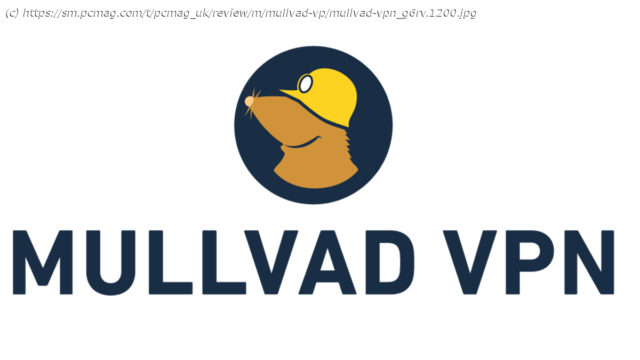Our top choice for budget VPNs
VPNs protect your web traffic from being snooped on, making it hard for spies and advertisers to track you online. So far, so good. The problem is that the world of VPNs is a confusing and chaotic one, filled with grandiose claims and shady practices. But Mullvad VPN is different. It is hyper-focused on offering secure and affordable VPN protection from a radically transparent company. You won’t get upsells, a huge variety of servers, or a breathtaking interface, but you will get better online privacy for surprisingly little money. In fact, Mullvad is our most affordable Editors’ Choice-winning VPN. How Much Does Mullvad VPN Cost? Mullvad breaks with the competition by offering a single price. There are no pricing tiers, no additional upsells, and no free versions. There’s just one price: 5EU per month, which at the time of writing is about $5.72. You can pay for your Mullvad account with major credit cards, PayPal, Swish, and—at a 10% discount—bitcoin. Mullvad also lets you pay via bank wire transfer or cash mailed directly to the company’s offices in Sweden. While cash transactions are anonymous, the company notes that using a wire transfer makes it possible to trace your Mullvad VPN account directly to you. IVPN has similar options, which are rarely seen in the industry. That €5 fee is significantly less than the average monthly price of the VPNs we’ve reviewed, which currently sits at $10.05 per month. Only a few for-pay VPNs, such as Kaspersky Secure Connection, are cheaper. Many worthy VPN services do charge more than the average—and significantly more than Mullvad—but they balance that cost with extra features and excellent user experiences. Surfshark and Editors‘ Choice winner NordVPN, for example, both charge $11.95 per month, but they also offer many additional privacy tools not found in Mullvad. Mullvad is notably cheap, but it’s not the least expensive VPN that’s worth considering. There are a few free VPNs you might try, too. Some are good but limited. Editors‘ Choice winner TunnelBear’s free subscription limits you to 500MB per month, for example, while Hotspot Shield raises the limit to 500MB per day. Editors‘ Choice winner ProtonVPN, however, has no data restriction on its free subscription, and it also offers affordable paid tiers that can accommodate most needs. Except for Mullvad—which, as mentioned has no pricing deals or tiers—most VPNs offer longer-term subscriptions at a steep discount. Considering all the services we’ve reviewed, this works out to be an average of $69.10 per year, up front. Over the course of a year, Mullvad costs slightly less, at about $68.64—despite not offering any deals. In any case, we recommend readers avoid long-term subscriptions—at least at first. Instead, consider using a free or short-term subscription to test a service in your home environment before you make a longer commitment. What You Get for Your Money With Mullvad For your relatively low fee, Mullvad allows you to connect five devices simultaneously with a single account. That’s the industry average, but a few companies have lately started offering more tempting options. Avira Phantom VPN, Encrypt.me VPN, Ghostery Midnight, IPVanish VPN, Surfshark VPN, and Windscribe VPN all put no limit on the number of devices you can use at a time. (Editors‘ Note: Encrypt.me and IPVanish are owned by Ziff Davis, PCMag’s parent company.) While Mullvad will protect your connection with a VPN, it doesn’t include additional tools for enhanced privacy and security. For instance, NordVPN, ProtonVPN, and VPNArea provide easy access to the free Tor anonymization network through their VPN servers. You don’t need a VPN to access Tor, however. Mullvad does provide multihop connections by enabling bridge mode in its apps. A multihop connection means your data travels through two servers before exiting to the internet, instead of just one. This can be used to circumvent VPN blocking and also to add a layer of security to your connection. We like that Mullvad includes this feature, but accessing it is a bit confusing. ProtonVPN and other VPN services also offer split-tunneling. This lets you designate which apps send their data through the VPN connection and is handy for accessing a service that blocks VPNs—like your bank or Netflix. Max didn’t see this feature on Windows during our testing, but Mullvad says it is available on other platforms and will be rolled out more widely. Some VPN companies, including NordVPN and TunnelBear, have begun bundling extras along with the primary VPN tools. Mullvad has no such aspirations. Its VPN is its sole product. The service does allow P2P and BitTorrent access, but it does not provide malware or ad-blocking at the network level. That last point is a nonissue, since we prefer the flexibility of a standalone ad-blocker. VPNs are enormously powerful tools for improving your privacy online, especially when you’re using public Wi-Fi. They cannot, however, protect against every ill. We still recommend that you use local antivirus, create unique and complex passwords with a password manager, and enable two-factor authentication wherever possible. What VPN Protocols Does Mullvad Offer? There are many ways to create a VPN connection. OpenVPN was the go-to choice in the VPN industry for years, but the newer WireGuard protocol has seen wider adoption recently. Mullvad was, in fact, one of the first companies to fully embrace it. Like OpenVPN, WireGuard is open-source and can be picked over for any potential vulnerabilities. Unlike OpenVPN, WireGuard uses newer encryption technology and tends to have less impact on your internet speeds. Mullvad VPN’s Servers and Server Locations Mullvad has servers in 38 countries across the globe. That’s a decent offering, but it’s far below the average of 49 countries we’ve seen among competitors. Mullvad also doesn’t have enormous diversity among its server offerings, with only one country in South America and no coverage in all of Africa—a continent often ignored by VPN companies. A large distribution of servers is desirable, since it gives customers more choices for spoofing their locations and also increases the likelihood of finding a nearby VPN server. ExpressVPN leads among the VPNs we’ve reviewed, offering servers in 94 countries. In total, Mullvad has 762 servers across the globe. Many other VPN companies overshadow that overall server count. NordVPN has about 5,500, while CyberGhost boasts the largest collection, with around 6,800 servers. A larger fleet doesn’t necessarily equate with better performance, but having many servers to choose from means more opportunities to find one that works for you. A single hardware server can play host to many software-defined virtual servers. A virtual location is a server that’s configured to appear somewhere other than where it’s physically located. Both are enormously useful, but we prefer that companies clearly communicate where their servers are actually located—whether they’re virtual or not.






